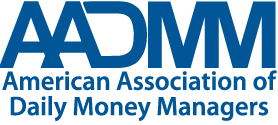
Resources
Financial Tip of the Month
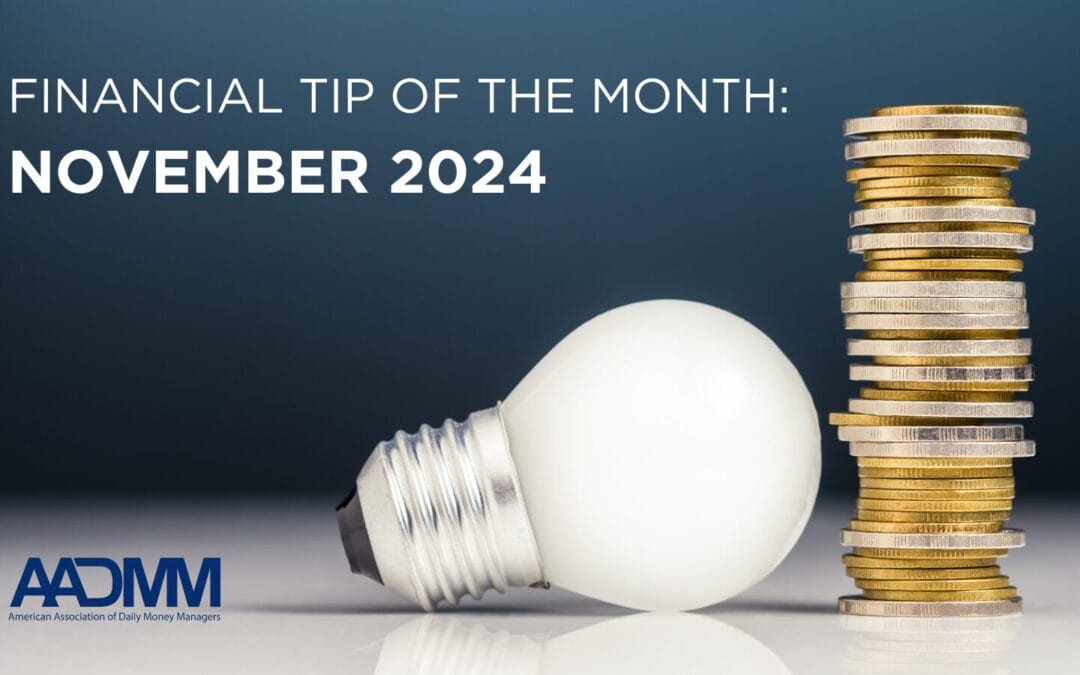
Emergency Funds: An Important Part of Your Financial Strategy
When you think of your financial portfolio, your emergency fund probably isn’t the first thing that comes to mind. You’re more likely picturing your investments, retirement accounts, and that hot stock tip you’re hoping will pay off. But the truth is, your emergency fund represents more than just a rainy-day stash—it’s a critical part of your overall financial strategy.
Emergency funds can be broken down into three categories: quick, intermediate, and comprehensive.
- Quick funds are your everyday cash—checking and savings accounts you can dip into on a moment’s notice.
- Intermediate funds include quick funds plus longer-term savings like CDs, giving you a bit more earning power while keeping cash accessible.
- Comprehensive funds take it a step further, wrapping in all financial assets outside of retirement accounts, creating a robust safety net that covers the spectrum of cash needs.
Strategies for funding and using emergency funds by category
Here’s how to strategically build and use each level of emergency funds, plus how to decide how much to keep in each category.
- Quick funds: The first line of defense
What it is: These are your most liquid (easily converted into cash) assets—checking and savings accounts that you can access instantly.
How much you need: Aim to keep at least one month of essential expenses here, two months if it would make you more comfortable or if you have irregular income.
How to fund it:
- Set up automatic transfers from your paycheck or checking account to your savings account on payday. This helps you save without even thinking about it.
- Start small and gradually increase the amount as you are able.
When to use it: Quick funds are your go-to for immediate, minor emergencies like car repairs, medical co-pays, or unexpected bills. Think of these as the financial equivalent of putting out a small fire before it spreads.
- Intermediate funds: The back-up plan
What it is: Intermediate funds include longer-term savings instruments like CDs or money market accounts that typically offer a slightly higher interest rate while still keeping your money accessible.
How much you need: Aiming for 3-6 months of expenses is a solid goal. This is where the bulk of your emergency savings should reside, providing a larger buffer against bigger disruptions like job loss or a major health issue.
How to fund it:
- Consider setting up an automatic transfer from your quick fund account to your intermediate accounts once you reach your initial savings goal.
- You can also allocate any unexpected income—like bonuses or tax refunds—directly into these funds.
When to use it: Intermediate funds are for more significant financial setbacks that require more cash than what’s in your quick funds. Use these for longer-term needs, like covering living expenses during a period of unemployment.
- Comprehensive funds: The fortress
What it is: Comprehensive funds encompass all your liquid financial assets outside of retirement accounts (401(k), IRA, pension plan), including investments in taxable brokerage accounts, bonds, and low-penalty withdrawal CDs.
How much you need: This category should cover 6-12 months of expenses, depending on your risk tolerance, income stability, and overall financial situation.
How to fund it:
- Once your quick and intermediate funds are solid, redirect any excess savings or investment gains into comprehensive funds.
- Reinvest dividends, allocate part of your bonus, and use any surplus cash flow to keep this safety net strong.
When to use it: These funds are for the most severe financial emergencies, such as prolonged job loss, major health issues, or unexpected life changes like divorce. They’re your financial fortress, built to withstand the big stuff that could upend your entire financial plan.
Overall Emergency Fund Strategy
Your emergency fund strategy should be layered. Start with your quick funds for immediate, small-scale problems, then build up your intermediate funds to cover mid-level crises, and finally, establish comprehensive funds as your ultimate safety net. The goal is to create a financial buffer that supports your peace of mind and gives you the flexibility to handle life’s inevitable surprises without derailing your long-term financial goals.
Working with a Daily Money Manager
A Daily Money Manager (DMM) can help you ensure that every part of your emergency fund is working efficiently. By partnering with your financial advisor, a DMM can provide a detailed look at your actual spending patterns, helping to make sure that each layer of your emergency fund is adequately funded and appropriately used. They can also handle the logistics of bill payments and track expenses, ensuring that if you dip into your emergency funds, they are replenished methodically over time. If you’d like to explore how working with a daily money manager could help you take back control of your finances, start by checking out the “Who Needs a DMM?” page on the American Association of Daily Money Managers (AADMM) website.
Ashley Wunderlich is a Daily Money Manager and founder of Koradel Capital Management

Financial Tip for January 2024
Federal Tax Changes 2023 And 2024: What You Should Know
As we usher in the new year, it is time to review legislative changes that influence the documentation individuals must compile for their income tax returns. While no significant shifts in federal tax policy were passed in 2023, changes enacted in prior years will impact 2023 and 2024 tax returns. Notable changes include:
- Adjustments to credits for energy-efficient residential improvements and electric vehicles
- Reforms in retirement planning and distributions
- Revisions in information reporting on 1099-Ks
- The implementation of beneficial ownership reporting requirements
Energy Efficiency Credits for Residential Properties
In August of 2022, the Inflation Reduction Act dramatically changed the types of home improvements for which individuals may receive tax credits. In addition to a name change for the tax credit, the effective date for claiming these credits was extended from 2023 through 2034.
The non-refundable Residential Clean Energy Credit can be carried forward indefinitely and can be used for any residential home in the US (either existing or being constructed) which means that a taxpayer can claim this credit for their primary home or secondary / vacation homes. Not only owners, but also tenants who install qualified energy efficient equipment in their home may claim these credits.
The Energy-efficient Home Improvement Credit was also modified. Previously, there was a lifetime limit of $500 for this credit, which has been eliminated. While there are limits on the different categories of improvements as well as annual limits, this credit can also be applied toward home energy audits.
Therefore, if home improvements were made to make it more energy efficient, it is important to collect the associated documentation for preparation of the tax return.
Clean Energy Vehicle Credits
In addition to home credits, the Inflation Reduction Act also increased the number and types of vehicles that may qualify for an energy credit. Previously, the credit could only be claimed by the first 200,000 electric vehicles sold by a manufacturer.
The new legislation eliminates the manufacturer production limit on the number of cars, and instead places limits on the vehicle itself. These limits include how powerful the battery is, how it is charged, and where the parts and the vehicle itself were manufactured. The list of qualified vehicles is available at https://www.fueleconomy.gov.
New cars are not the only ones that can receive credits. New for tax years beginning after Dec 31, 2022, is a non-refundable credit for the purchase of a previously owned Clean Energy Vehicle. The car must be at least two model-years earlier than the calendar year, and there are limits on the sales price.
IRAs, Inherited IRAs, RMDs and RMD Penalties
The Setting Every Community Up for Retirement Enhancement Act (SECURE Act 2.0), which was passed in December of 2022, was a follow-up bill to the original SECURE Act which was enacted Jan 1, 2020. Both Acts made significant changes to Retirement plans such as IRAs, 401ks, etc. These types of accounts were designed to help people plan for retirement, and most are tax deferred (meaning taxes are paid at some later date), not tax exempt. So, many of the new regulations change when withdrawals need to be made (and therefore taxes are paid).
The original SECURE Act changed the Required Beginning Date (RBD) to take Required Minimum Distributions (RMDs) to age 72 for those born after July 1, 1949. The SECURE Act 2.0 gradually increases the age for starting RMDs to age 75.
Prior to 2020, beneficiaries of retirement accounts generally had to take required minimum distributions over their lifetime, although there were some situations when it had to be distributed within 5 years after the year in which the original owner died.
The SECURE Act of 2019 created two types of designated beneficiaries of inherited IRAs. One type had the ability to take RMDs over the beneficiary’s lifetime but were limited to certain individuals. Most beneficiaries fell into the second type and were now required to have the IRA distributed over a ten-year period. These requirements applied to both IRAs and Roth IRAs. Taxpayers who have an inherited IRA or Roth IRA should consult a tax professional to determine how distributions from the account should be made to avoid penalties.
RMD Penalty Changes
Prior to SECURE Act 2.0, the penalty/excise tax for not having taken a required minimum distribution was 50% of the amount that was supposed to have been withdrawn. That meant that if the RMD was $50,000, there was a $25,000 penalty just for not taking the withdrawal. The only way to avoid the excise tax was to take corrective action, and file a request for penalty abatement. The 2022 legislation lowered the penalty/excise tax to 25% of the RMD amount not withdrawn, which is further reduced to 10% if the oversight is corrected in a timely manner.
Since IRAs are intended to be used for retirement, there is generally a 10% additional tax if an individual withdraws money from their traditional IRA before they reach the age of 59½. However, there are certain exceptions to this 10% tax for people using the funds for specific purposes.
The SECURE Act 2.0 added several new exceptions. Each exception may have a different effective date, varying details, and be applicable only to specific types of tax-deferred retirement accounts.
Note that RMDs are not required for Roth IRA accounts during the original owner’s lifetime. Until 2024, RMDs were required to be taken from Roth 401k accounts, even though the distributions are not taxable. The SECURE Act 2.0 modified the RMD requirements for Roth 401k accounts to be consistent with Roth IRA accounts.
Contributing Funds For Retirement
The SECURE Act 2.0 changed not only the rules regarding withdrawals and penalties, but also contributions and the establishment of retirement accounts.
Many of the new contribution provisions apply only to employer sponsored plans, but may apply to Simplified Employee Plans (SEPs) for self-employed individuals or other small business owners. The legislation includes improved coverage for part-time employees and spouses of active military as well as incentives and credits for small businesses to establish retirement plans.
Employers may now make “matching” contributions to a 401k plan for employees who are making student loan payments. There are also new provisions enabling employers to make Roth contributions to employee retirement plans (not only traditional pre-tax contributions), including to SEP and SIMPLE accounts. Employers can also create emergency savings plans tied to defined retirement contribution plans. This last provision allows employers to encourage their non-highly compensated employees to save for retirement and set aside funds for emergencies.
Congress also is allowing 529 accounts to be dual purpose – saving for college and for retirement. Beginning in 2024, taxpayers can rollover 529 funds into a Roth IRA, provided certain conditions are met. This new dual purpose encourages families to continue contributing to 529 accounts even if they are uncertain whether the beneficiary will be attending college or will have all of their educational expenses covered by scholarships and grants.
1099-Ks
Statistics show that taxpayers are more likely to report their income when they receive tax information reporting documents such as 1099s, 1098s or W2s. 1099-Ks are required to be issued by third party payment processors, such as credit card processing companies as well as payment apps (Paypal, Venmo, CashApp, etc) and online marketplaces (Etsy, Poshmark, etc). Previously, a 1099-K was only required to be issued to someone who had income of $20,000 and 200 transactions if goods were sold or services were provided.
The American Rescue Plan of 2021 lowered the reporting threshold for 1099-Ks from $20,000 to just $600, with no minimum number of transactions. The new, lower, reporting requirements were originally scheduled to be implemented for 2022, but the industry pushed back due to the extra work required to meet the lower threshold. The IRS initially gave the industry another year, to 2023 to implement. However, as of Dec 31, 2023, the IRS announced that for 2023, the reporting requirements will remain at $20,000 and 200 transactions, and that 2024 will be a transition year with a threshold of $5000 with no transaction minimum.
The receipt of a 1099-K, however, does not change the taxability of the income. The sale of an extra pair of concert tickets may not be taxable, but may result in the issuance of a 1099-K.
Since the IRS computer systems are becoming more efficient at flagging taxpayers with income documents that are not reported on the tax return, it is important that taxpayers go online to identify whether a 1099-K (or other information reporting document) was issued, and provide that information to their tax preparer.
Corporate Transparency Act
While not tax legislation, the Corporate Transparency Act will likely impact a large number of taxpayers – including self-employed individuals and rental property owners.
On January 1, 2021, the Corporate Transparency Act (CTA) was signed as part of the Anti-Money Laundering Act of 2020. This legislation is a follow-up to the Bank Secrecy Act of 1974 which required banks and other financial institutions to identify and verify beneficial owners.
The purpose of the CTA is to help law enforcement detect, prevent, and punish terrorism, money laundering and other misconduct by requiring business entities to report their beneficial owners directly to the federal government. It is also meant to bring the U.S. into compliance with international anti-money laundering standards.
Starting January 1, 2024, companies required to provide beneficial ownership information may register directly with the Financial Crimes Enforcement Network (FinCEN), which is a division of the U.S Treasury. They must submit a Beneficial Ownership Information (BOI) report which includes the full legal name, current residential address, date of birth, and a unique government identification number for each beneficial owner of the company.
Most small businesses formed at the state level, including LLCs and S-Corporations, must file a BOI report. Exempt from filing are what are called large operating entities. There are also exemptions for a number of types of businesses such as banks and non-profits. Therefore, most individuals or partnerships that created an LLC for their self-employment income or rental property will need to file. The FinCEN website has tools to assist in determining who needs to file and how to do so.
Looking Forward: Possible Changes Retroactively Affecting 2023
While no significant tax legislation was passed in 2023, the federal budget for the 2023-2024 fiscal year still has not been approved. Congress often includes tax policy changes in the various appropriations bills, and sometimes includes retroactive provisions.
Some of the proposals which may be retroactive include expensing research and development costs, higher bonus depreciation, increasing the state and local tax cap for itemized deductions, and an expanded child tax credit.
None of these will likely alter what documents taxpayers need to provide to their preparer, but may significantly impact the tax return. So, don’t be surprised if this tax season tax professionals are encouraging their clients to delay filing in order to take advantage of the latest changes.
(Click here to read an expanded version of this article with additional detail)
= = = = = = =
Katherine (Katie) Gudgel, E.A., PhD, specializes in helping seniors and trusts with tax preparation through her firm, Gudgel Professional Services. As an Enrolled Agent (EA), Katie is a federally-authorized tax practitioner who has technical expertise in the field of taxation and who is empowered by the U.S. Department of the Treasury to represent taxpayers before all administrative of the Internal Revenue Service. Early on, Katie found that many taxpayers have difficulties collecting all of the documents needed in order to prepare their tax returns. In 2015, after a colleague introduced her to AADMM, she expanded her services to include Daily Money Management. Prior to joining the AADMM national board in 2024, Katie was active in the Arizona regional group, and on the Governance, Nominating, and Alliance Builder Committees.
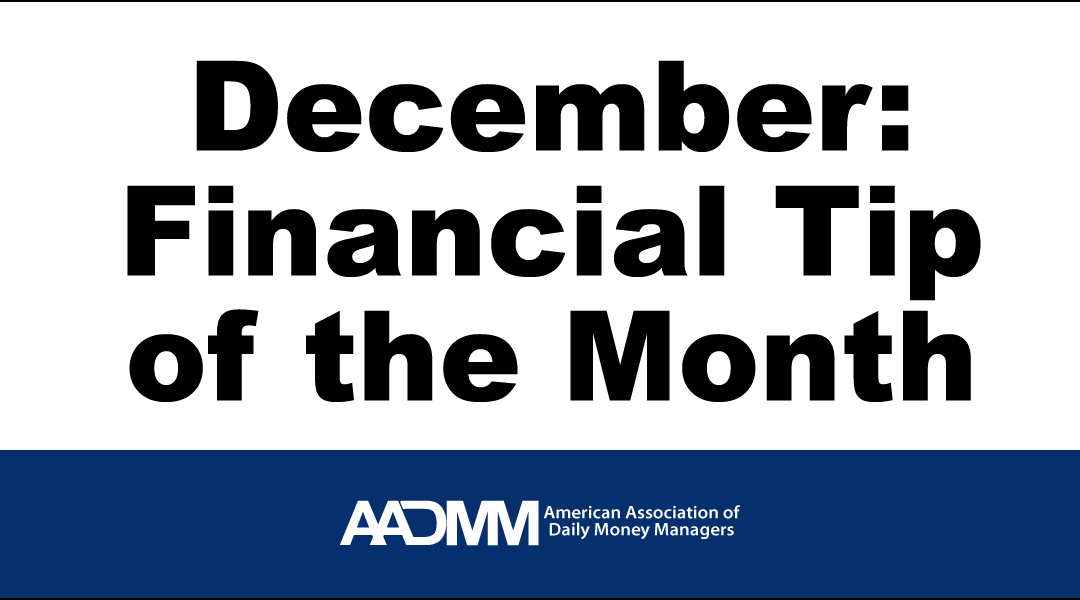
Financial Tip for December 2022
With the hustle and bustle of our lives, it is easy to overlook several of the important financial dates for this month.
- December 31– Last day to take required minimum distributions for your IRA, 401(k) and inherited IRAs. You generally have to start taking withdrawals from your IRA, SEP IRA, SIMPLE IRA, or retirement plan account when you reach age 72. Financial institutions may require you to request distributions before the deadline to allow processing.
- December 31: Deadline to set up most types of retirement accounts so that eligible contributions count toward the current year.
- December 31 – Deadline for 2022 charitable contributions. Although there were expanded provisions for tax year 2021 that provided tax benefits for individuals, those special rules were not extended, but reverted back to prior tax years. Additionally, there are several provisions to help businesses who give to charity.
Create a Budget and Track Expenses
December is an excellent time to review expenses for the year, which can help with planning your budget for 2023.
For instance, are you planning a vacation in 2023 or will you wait for a later time?
Maybe you found yourself tapping your emergency or savings accounts during this year. If so, it will be important to replace those funds when you are able to do so.
Creating a budget or spending plan is important to maintain overall control of income and expenses. From spreadsheets, paper and pen to mobile apps, there are many ways track spending. Finding the method that works best for you is important to ensure your success and provide you with the peace of mind that comes when your finances are in order.
Happy Holidays
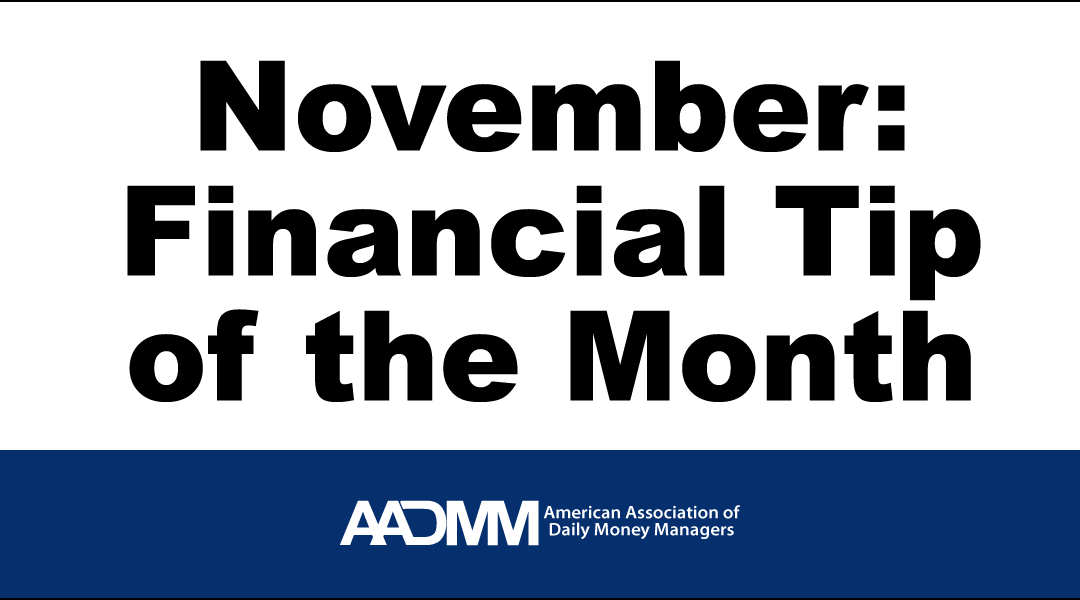
Financial Tip for November 2022
As 2022 draws to an end, here are several time-sensitive financial tasks to consider.
Year-End Retirement Planning
Contribute to 401k plans by December 31st
Deposits to your 401k plan are due by the end of the year. Typically, 401k contributions are made through payroll deduction. It may take your company a pay period or two to process a change and make the deposit, so be sure to allow enough time for this to be completed.
Determine if you will need to take an RMD (Required Minimum Distribution).This is the minimum amount of money you must withdraw from employer-sponsored retirement accounts and individual IRAs.
The age at which individuals need to withdraw RMDs was changed from 70.5 to 72 due to the SECURE Act legislation.
Donate your IRA distribution to charity
If you don’t need the money from your RMD, you may be able to avoid paying income tax on part or all of the required distribution if you directly transfer an IRA withdrawal to a qualifying charity.
Qualify for the Savers Credit
Low- and moderate-income workers who save for retirement in a 401(k) plan or individual retirement account could qualify for the saver’s credit. This retirement savings contribution credit can be claimed when filing taxes.
More time for IRA contributions
You have until April 18, 2023, to make an IRA contribution that will qualify you for a tax deduction on your 2022 return. You can contribute to an IRA shortly before filing your taxes to get a nearly immediate reduction in your tax bill.
Happy Thanksgiving

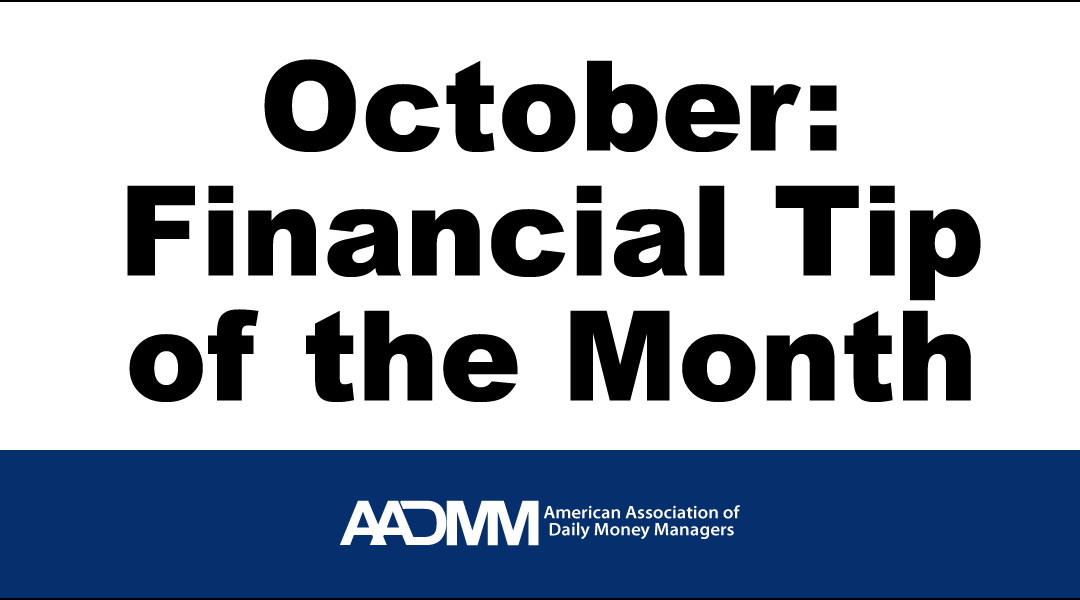
October 2022 Financial Tip
If you have a family member who will be in college for the 2022-23 school year, October 1st is the start date for submitting the Free Application for Federal Student Aid, or FAFSA. The FAFSA is the key to getting financial aid; every student should file because not all financial aid is based on need.
October is also a good time to check and, if needed, adjust your 2022 tax withholding. If you’re not withholding enough, you could face an unexpected tax bill or even an underpayment penalty when you file your return. If you’re withholding too much tax, you may be able to take home a larger paycheck instead of waiting for a refund next year. The IRS has an online Tax Withholding Estimator calculator available on the IRS website.
People enrolled in a Medicare Prescription Drug Plan can benefit from comparing plans during open enrollment which begins October 15th and runs through December 7th. Plans often change premiums, formularies, drug costs, deductibles, and other plan features annually. The plan that was most cost effective for an enrollee in 2022 may not be the best plan for them in 2023.
**For individuals enrolled in the Medicare Advantage Plan (with or without prescription coverage) the open enrollment period is January 1st thru March 31st.
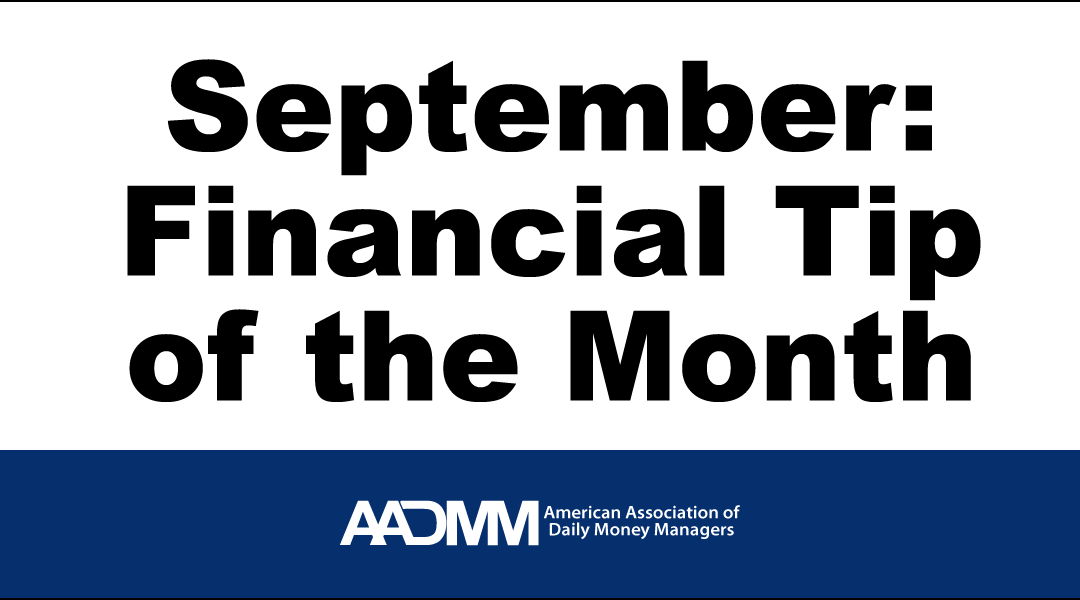
School, Taxes and Health Benefits
September is the official end of summer and a return to classes for students and teachers.
It is also estimated tax time again!
If you receive income where there is no withholding (eg. Investment earnings, home business) then you are probably familiar with estimated tax payments.
The third quarter payment for tax year 2022 is due September 15th
If you plan on using the postal service, it is considered on time if it is postmarked on or before the due date. So, take the checkbook out and pay early or, you can pay online for faster processing.
Have questions? Here’s the scoop from the IRS
Open enrollment for 2022 health benefits begins November 1st
Now is a great time to review your current health plan and medical expenses over the past year to see if your plan best meets your needs. During your review, you may find answers to many questions in this open enrollment guide from HealthInsurance.org.
And for those who like to get a jump start on the New Year, September is a great month to evaluate end-of-the-year expenses. Make sure your budget includes extra expenditures such as holiday travel and gifts so you don’t have to dip into your savings or emergency fund.
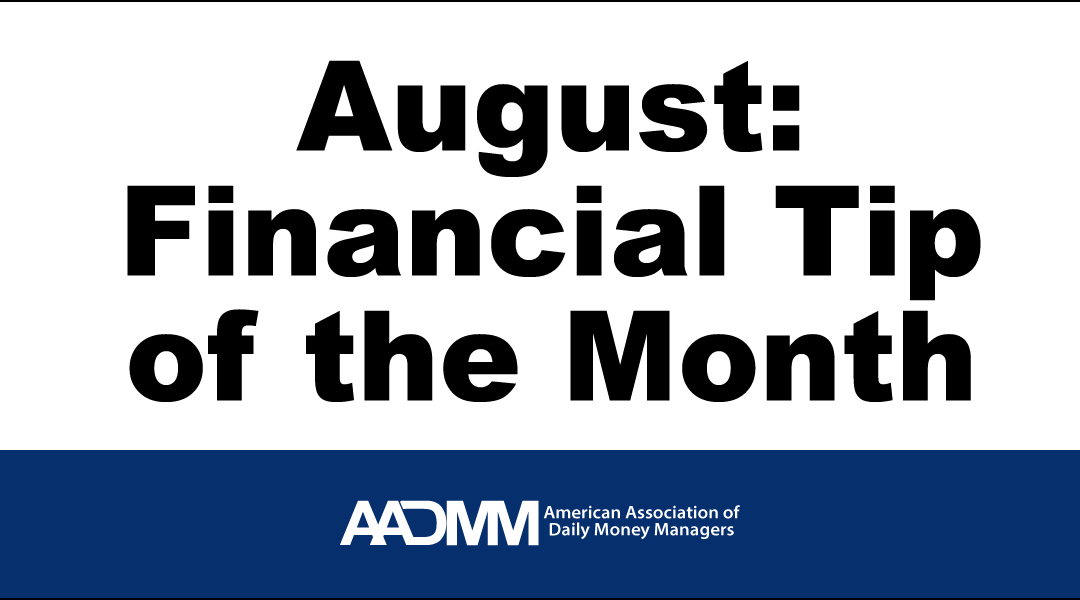
Your August Financial Tip: Check Your Credit Reports
August is usually when people enjoy well-deserved vacations and time away from school and work. Many look forward to this month as a time to relax and recharge before returning to their usual September schedules.
Taking time off from one’s regular routine is good for physical, mental, and emotional health. But in regard to your finances and credit, staying vigilant and informed is crucial throughout the year.
Check your credit reports
To help you monitor your financial information at the 3 credit reporting agencies (Equifax, TransUnion, and Experian), consider going to AnnualCreditReport.com to request one free credit report from each credit reporting agency.
Consider a credit freeze
You can obtain free credit freezes at all 3 reporting agencies. Credit or security freezes prevent new accounts from being opened without your permission.
Fraud alerts to prevent identity theft
You may also want to add a fraud alert at no charge to your credit account to ensure lenders verify your identity and prevent identity theft.
Knowing that you have taken the necessary precautions to protect your credit can go a long way to having peace of mind with your finances.
Once you’ve checked your credit and made sure your finances are in order, it’s time to sit back and relax! You’ve got a month of summer left to enjoy and you can do so knowing that you have taken the necessary precautions to protect your credit health.
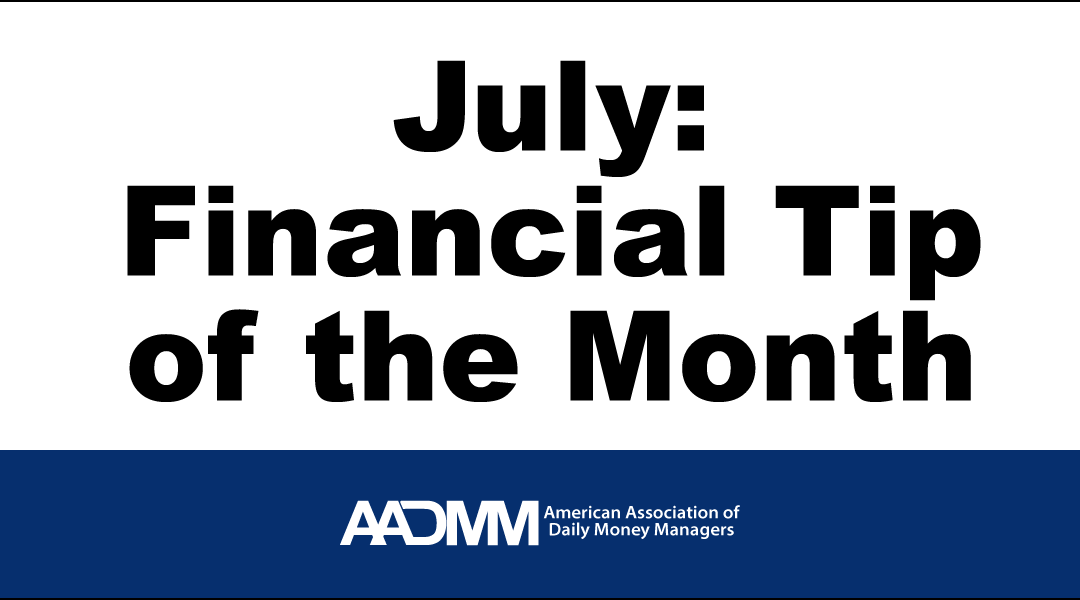
Consistency is the key to financial independence
We are almost halfway through! For some of us, it has been a challenging year, for others an ongoing process. For most of us, it has been an awakening – a new experience as we are coming out of our post-pandemic hibernation. How will you embrace the remainder of this year?
Consistency is important in all aspects of life and even more so to help meet your personal financial goals. Many of us have big goals; but, often do not realize that we achieve those goals through small actions and good habits. Just as compounding can grow your money, consistency, which is the compounding of effort, can help you achieve your personal financial goals.
When we look at others who have achieved something we often ascribe their success to circumstance, luck, or opportunity. The reality is that most success is born from good habits and there is no reason that cannot be you.
Most people start a review of their finances with income and savings, which are important, but not as impactful as you think. Reviewing, analyzing, and critiquing your spending is the part of the financial equation where you will achieve the real payoff.
To start you on your journey, assess your spending and make decisions about how you spend and why. Remember that small items add up, good habits compound, and consistency will lead you to your goal.
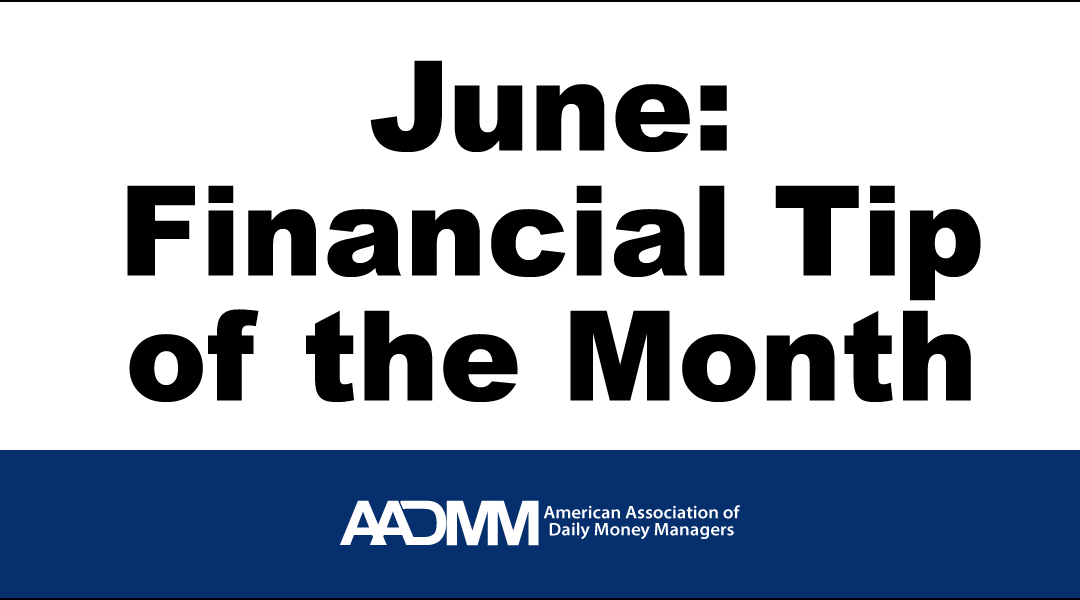
Financial Tip for June 2022
Review and Plan
June, the midpoint of the year, is a great month to review your annual spending plan and make adjustments as needed. This will ensure that you have the necessary funds for vacations and other summertime activities.
In addition to your monthly budget items, seasonal expenditures may include summer camp, daycare, summer school, family travel, etc. Have you added these costs into your spending plans for the next few months? Now is a good time to do so to make sure these expenses are covered without dipping into your emergency fund or long-term savings.
As part of this review, you may want to check your investment statements to make sure your portfolio is in alignment with your financial goals. It is also a good time to meet with your investment advisor or CPA to review your financial investments to see if changes are needed.
If you are retired or close to retirement, it is important to review your income needs and how much will be covered by pensions and Social Security. Having this information available will help inform whether or not additional income needs to be generated from your investments.
**Important dates to remember:
Quarterly estimated tax payments are due by June 15, 2022.
For the Academic year 2021-2022 –FAFSA forms must be submitted by 11:59 p.m. CT on June 30, 2022. Any corrections or updates must be submitted by 11:59 p.m. CT on Sept. 10, 2022.
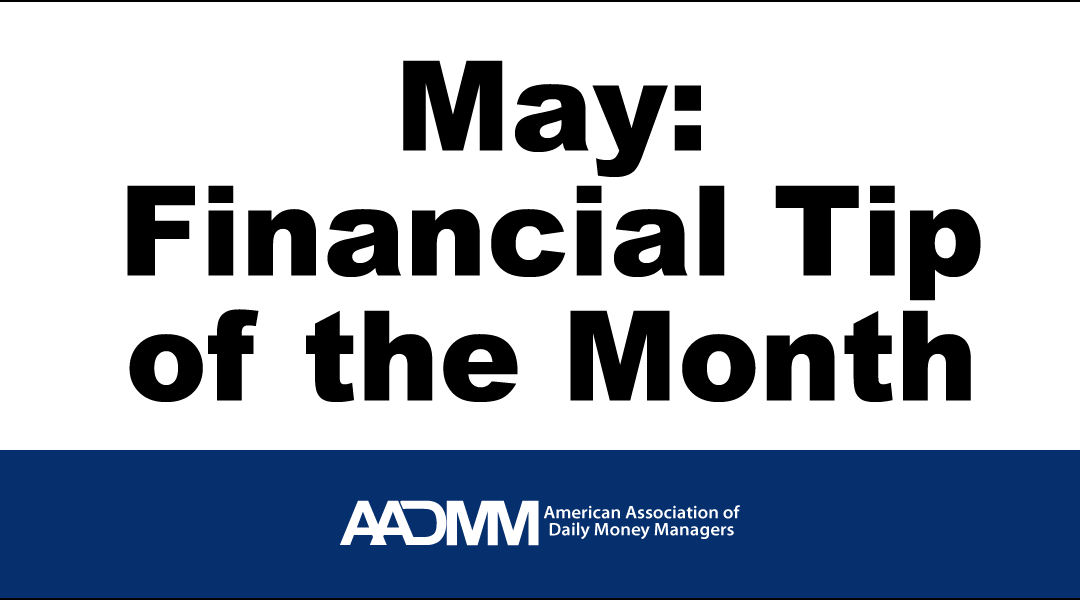
May – focus on the details
May is a great month to review your personal finances.
National Financial Literacy was celebrated throughout the month of April and provided many resources and strategies to manage your finances.
Now is the time to apply those financial strategies to your own situation.
May is also a good time to update important information. Have you recently reviewed your designated beneficiary on your life insurance policies and retirement accounts? Not having the person or persons designated whom you currently wish to benefit can prove to be an unfortunate and costly mistake.
Additional information to update in your personal records (for yourself to have handy and your loved ones) are your home and auto insurance policies. Have you purchased a new car, added drivers to your auto policy, moved or received a new Medicare card? These are all changes that require updating your insurance information.
As many people begin tending to their lawns in the spring, it is also a good month to weed out financial documents you no longer need.
If you don’t have a shredder or you have too many financial documents to get rid of yourself the UPS store offers shredding services. You can also check with your local municipality to see when free shredding events are scheduled.
Also, look into removing documents that are stored on your computer, external drives, and other devices.
Lastly, remember to keep your financial information safe from identity theft and fraud with these guidelines from the IRS.
After “spring cleaning” your finances, take time to relax and savor a job well done!
Stay tuned for next month’s AADMM Financial Tip!
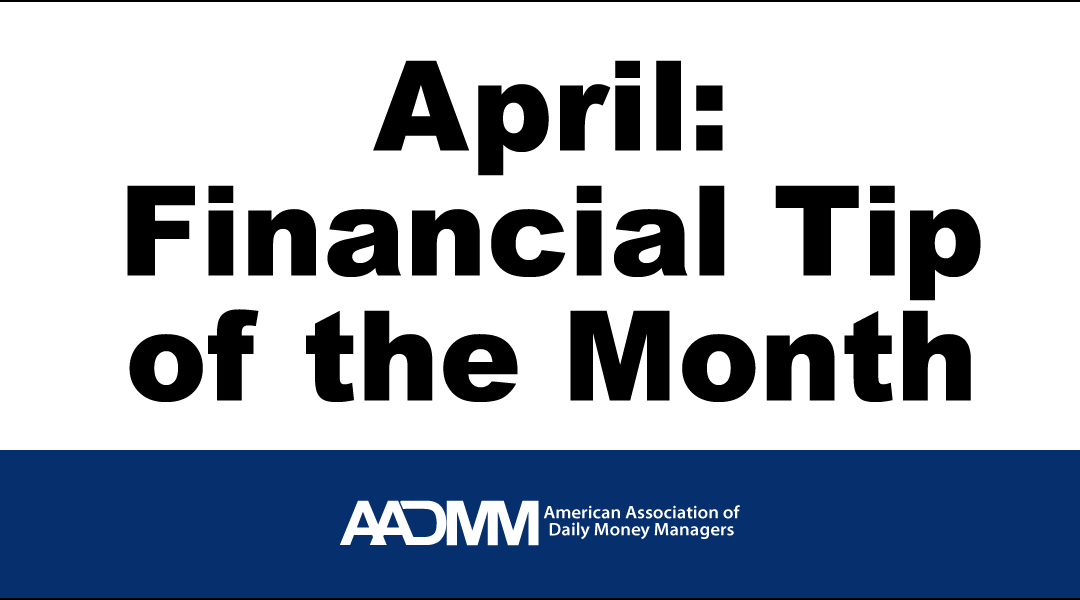
April is Financial Literacy Month Too
Tax Day: The deadline to file your 2021 taxes is April 18th.
I am sure that everyone gathered all your tax related documents and provide them to your Certified Public Accountants as soon as feasibly possible. Wink wink.
Once the tax forms are prepared and received back from your CPA, be sure to review them by comparing them to last year and to your 2021 supporting documents. Many folks miss this step. It is important to make sure the numbers reported are accurate and the reporting of the information is correct as well. Don’t hesitate to ask questions of your CPA if you find something that does not look right. It is in your and your CPA’s best interest to make sure the information is accurate and complete. It is also worth mentioning to remember to be kind and patient with their response. This is their busy time of year, and you are probably one of many asking for attention.
As you gather and review your tax documents in preparation for filing by the April 18th, this is an excellent time to review your spending habits and create a savings plan and emergency fund if you don’t currently have one.
Financial Literacy Month
National Financial Literacy month is recognized each year during the month of April. The month of April was designated Financial Literacy Month by Congress in 2004 to raise public awareness of the importance of financial literacy and maintaining smart money management habits.
During this month, hundreds of organizations across the country—including businesses, financial institutions, schools, libraries, nonprofit groups, government agencies, and the media—come together to stress the importance of financial literacy.
One of the special events promoting financial literacy that will occur this month is Money Smart Week, which begins on April 9th and extends through April 16th.
All sessions during Money Smart Week will meet virtually as did in the prior year.
Another way to celebrate Financial Literacy Month is to take the 30 day challenge offered by Money Management International. They provide 30 days of financial steps that will help to improve your understanding of finances and increase financial literacy for many.
There will be many opportunities to increase your financial knowledge during the month of April as well as throughout the year.
AADMM will continue to provide a Financial Tip each month so stay tuned!
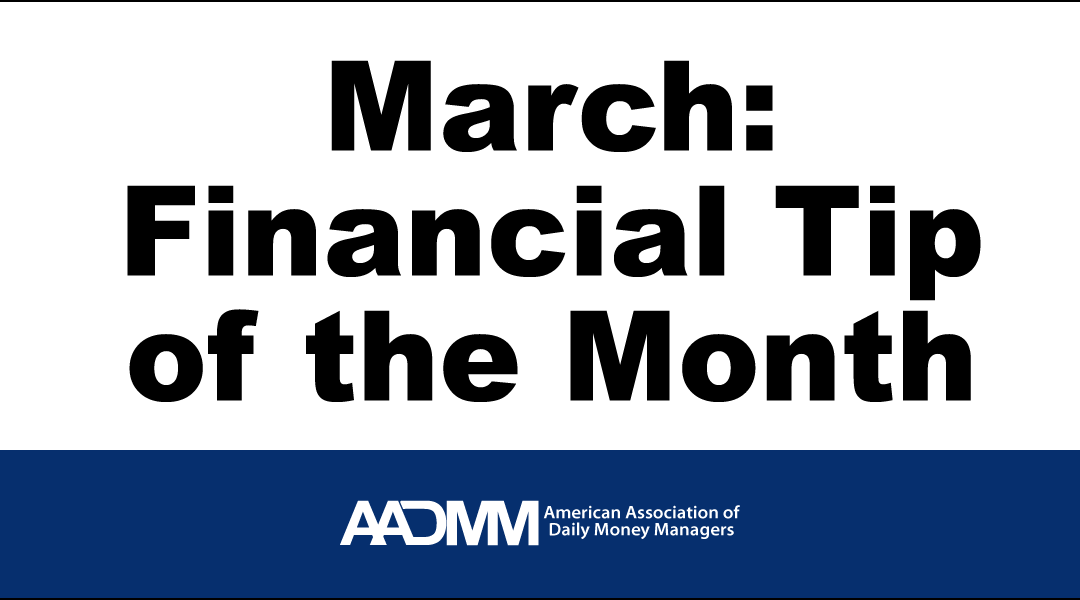
March: Down to the Wire for Taxes and Looking Forward
March is often considered the “crunch time” for tax preparation. This is a time when missing documents and other tax forms should be tracked down to give the information to your tax preparer as soon as possible for filing by April 18, 2022, deadline.
If you plan to utilize one of the tax software programs on the market, be sure to review the requirements so that you have what you need when you are ready to file.
Contribute to an IRA
This is also a good time to contribute to an IRA or Roth IRA for 2021 prior to the deadline of April 18, 2022.
Check your FSA
Many Health Care Flexible Spending Accounts had a December 31, 2021 deadline for filing claims. Due to the Covid19 Relief bill signed into law in December 2020, there may be some extensions and other changes. Employees are able to carry over their unused health funds from 2021 into 2022 if their workplace opted into the changes, according to the IRS (this is also true for dependent care FSAs). Contact your FSA administrator if you have questions. The 2022 maximum the IRS let employees contribute is $2,850. See the IRS.gov links below for more tax-related information.
Related links:
https://www.irs.gov/newsroom/irs-provides-tax-inflation-adjustments-for-tax-year-2022

Annual Financial Calendar
Daily money managers are adept at keeping track of clients’ financial obligations using a variety of methods. One such method frequently used to stay organized and make payments on time is a financial calendar. A financial calendar is a simple system for keeping track of financial obligations throughout the year or for a chosen period of time, in much the same way as people remember birthdays, anniversaries, and appointments.
For those who utilize technology, here are some options available:
- Reminders automatically generated using financial software like Quicken or Microsoft Money.
- Spreadsheets that can be sorted by payee, payment due date, or other criteria.
- Reminders created using apps for electronic devices.
- Reminders established with payees. For example, some insurance companies will send emails to policyholders a few weeks before premiums are due.
A Financial calendar does not have to be high-tech to be effective. It can be as simple as a ‘list’ of financial obligations that you review regularly, or a paper calendar with payments due and funds to be received recorded in different ink colors to make them easier to spot.
Financial calendars are also useful for documenting other financial information such as IRA required minimum distribution (RMD) deadline dates. For those living on a fixed income, tracking receipt of dividends and other distributions is useful for creating accurate cash flow projections.
It is important that the system you use is one that you can maintain.
You can create a perfect financial calendar, but you will only be successful if you use it. For those who struggle with keeping track of bills, or lack the time to handle personal financial affairs, you may want to consider hiring a daily money manager to manage your financial calendar. This will ensure that all of your bills are paid on time every month.
AADMM’s Public Awareness Committee has created a Financial Calendar Series. Each month, financial events and reminders will be added. Watch for updates on AADMM’s Facebook page.
